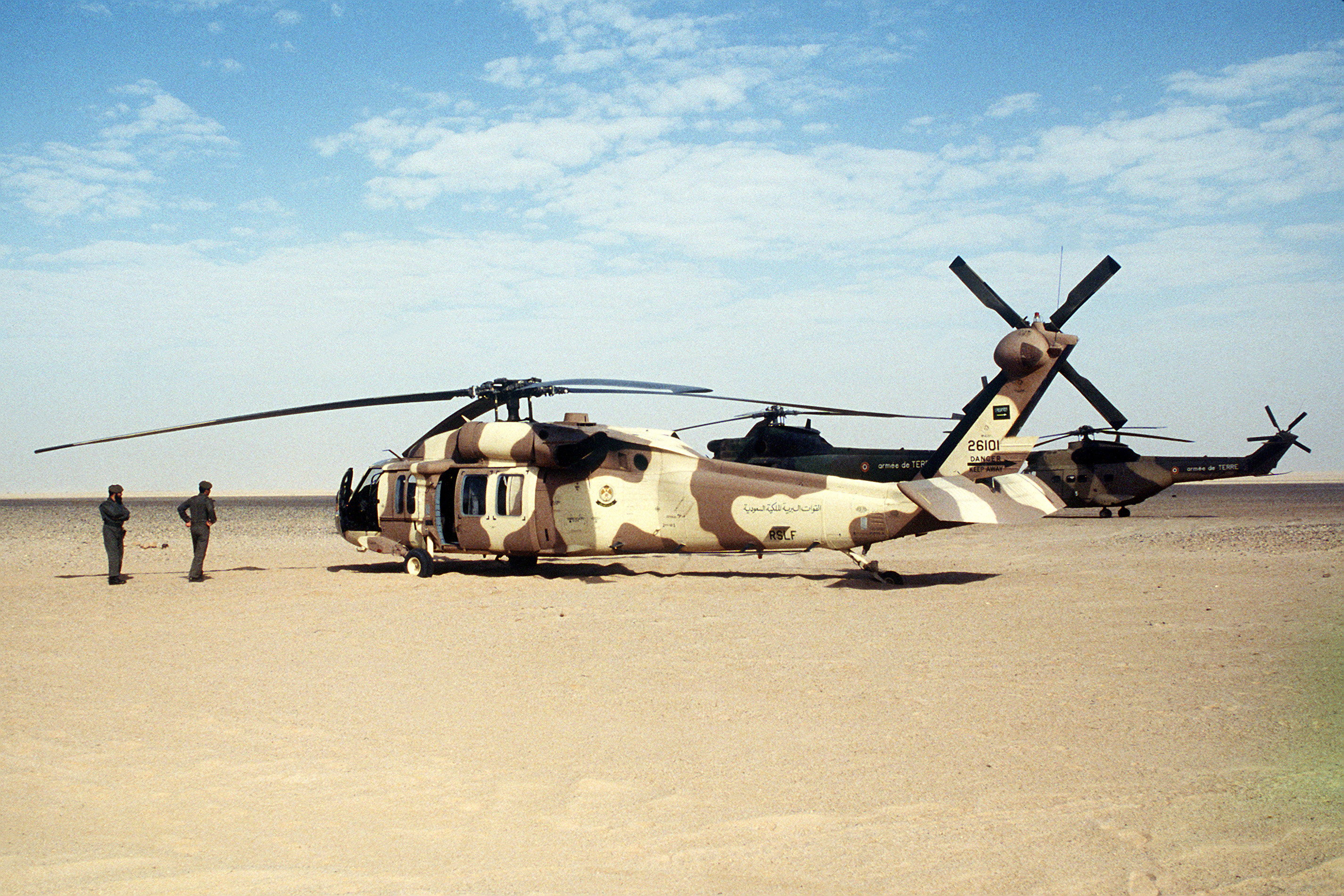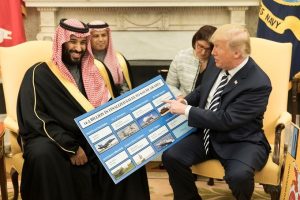by Seth Binder
The coalition of countries involved in Operation Decisive Storm, which is attacking the Yemeni insurgent group known as the Houthis, includes some of the largest U.S. recipients of military assistance and arms sales. In fact, the coalition has received a combined total of $10.5 billion in security assistance from FY 2009 to FY 2014 and $21 billion in arms sales from FY 2009 to FY 2013 from the United States.
The U.S. government support for these coalition members follows a long-standing policy that promotes security assistance as a way to build the capacity of its partners to combat terrorism and promote regional security. In some respects, the coalition’s operation brings this effort to fruition. This strategy was just reaffirmed in the 2015 National Security Strategy and President Obama addressed the issue when he spoke with The New York Times’ Thomas Friedman, explaining that he hopes to “help build their [Arab allies] capacity so that they feel more confident about their ability to protect themselves from external aggression.”
U.S. Secretary of Defense Ashton Carter reiterated this strategy when he supported the willingness of the Operation Decisive Storm coalition to step up to “do more for stability” in the region. But the operation is raising questions about the efficacy of the policy rather than validating it.
Already the United Nations is expressing concern over the increasing number of civilian casualties caused by the strikes, which have targeted a refugee camp and potentially a dairy factory. According to the World Health Organization, more than 640 people have been killed, 2,200 wounded, and 330,000 displaced over the past few weeks. Making matters even worse, food prices have doubled and fuel quadrupled placing “increased pressure on the lives of more than 16 million Yemenis who already need aid,” according to Oxfam.
To support the coalition, the United States is providing “logistical and intelligence support.” This effort could potentially alleviate some of the early humanitarian miscues—caused by U.S.-provided weapons—by helping improve the selection and precision of the strikes. But it is not the only concern raised by the airstrikes.
The coalition has expressed a desire to push back the Houthis and reinstate President Abd Rabbou Mansour Hadi as the rightful executive of the country, while pledging to continue fighting until the Houthis surrender and disarm. However, the airstrikes risk exacerbating regional tension by pushing Iran to double-down its support for the Houthis, adding Yemen to a regional proxy battle where it didn’t previously exist. In fact, the Iranians have now deployed two warships to the Gulf of Aden, although they claim it is to protect their shipping from piracy.
In addition, the airstrikes have already allowed al-Qaeda in the Arabian Peninsula (AQAP) to reemerge amid the chaos. They have captured the port city of al-Mukalla, Yemen’s fifth largest city, freeing 300 prisoners from its prison – including well-known jihadists – and raiding its central bank. And now AQAP has offered 20 kilograms of gold (worth approximately $774,000) to anyone who kills or captures the Houthi leader, Abdelmalik Bedrudin al-Houthi or his current ally and former president, Ali Abdullah Saleh.
So why does the United States support the operation? According to a U.S. defense official speaking to The New York Times, “If you ask why we’re backing this, beyond the fact that the Saudis are allies and have been allies for a long time… is that we weren’t going to be able to stop it.” Not only is the United States avoiding efforts to stop the operation, it is now expediting pre-existing weapons deliveries and new munitions to coalition members, according to Deputy Secretary of State Anthony Blinken. Although there is likely more to the story, including the U.S. need to reaffirm its support for allies that oppose the nuclear negotiations with Iran, the coalition’s airstrikes indicate how building partner capacity could eventually challenge U.S. interests.
As Yemen remains embroiled in conflict, the US policy to build partner capacity is being challenged. The United States cannot stop foreign countries from conducting their own foreign policy, even those receiving U.S. weapons. The airstrikes have killed innocent civilians and further destabilized a country, heightened the regional proxy war and strengthened AQAP’s hand. No easy solution exists in Yemen. However, as Operation Decisive Storm is demonstrating, building partner capacity can potentially cause as many problems as it hoped to eliminate.
Seth Binder is the program associate at the Center for International Policy for the Security Assistance Monitor program and covers the Middle East and North Africa. He is the co-author of “The Moroccan Spring and King Mohammed VI’s Economic Policy Agenda: Evaluating the First Dozen Years,” a chapter in The Birth of the Arab Citizen and the Changing of the Middle East due out September 2015.






How many years has this been going on? What is sad about the whole adventure, is the deaths/maiming of the innocent civilians, which is collateral damage as far as the aggressors are concerned, on both sides of fight. The U.S. providers have certainly made a mess of the M.E. since the end of the cold war. Eventually, sooner rather than later, the U.S. will have to withdraw, both militarily as well as being the aggressor. Of course, the political leaders in the U.S. responsible, will escape any punishment. After all, they are the good guys in all of this.
Seventy years ago some altruistic people established the United Nations to stop international aggression, and it appears their great effort was entirely in vain, thanks mostly to the United States which ironically is the host of the UN Security Council, the agency charged with enforcing the UN Charter. Instead it’s been occupied not by stopping US aggression but by sanctioning concocted US enemies, like Iran.
It must be very confusing especially for young people to figure all this out, how illegally promoting instability and killing people, promotes…stability according to the geniuses in Washington. Oh, that’s right, the world leader has no choice, couldn’t stop it, so join it and call it Operation Decisive Storm because no title, no medals for those “contributing.”
Reminds me of Flip Wilson: “The devil made me do it.”